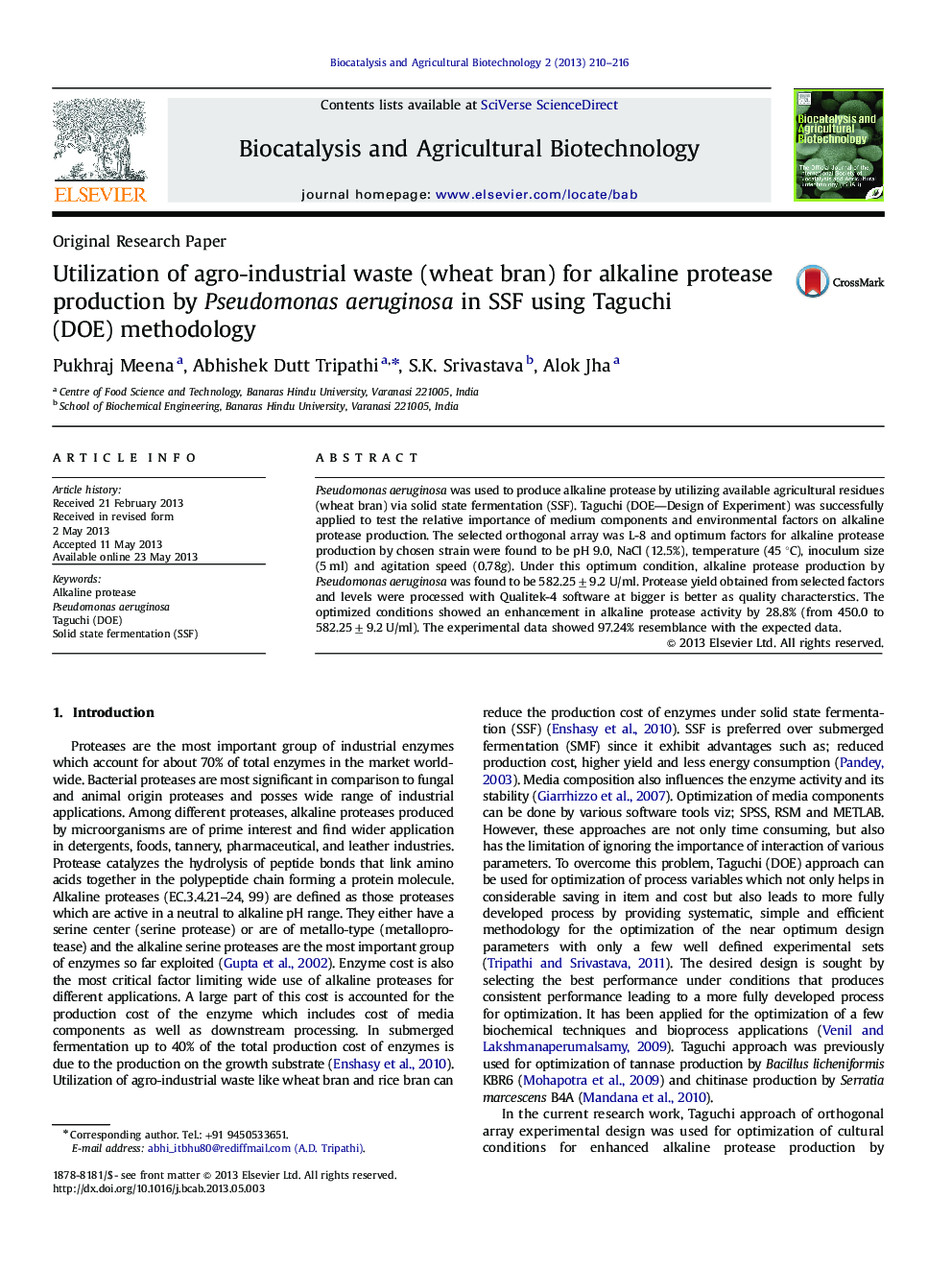| Article ID | Journal | Published Year | Pages | File Type |
|---|---|---|---|---|
| 2075554 | Biocatalysis and Agricultural Biotechnology | 2013 | 7 Pages |
•Wheat bran was utilized for alkaline protease production in SSF.•Screening of alkaline protease producing microbe was done by plate assay.•Taguchi (DOE) was used for optimization of process parameters.•Pesudomonas aeruginosa gave alkaline protease activity of 582.25±9.2 U/ml.•Alkaline protease activity was enhanced by 28.8% under optimized conditions.
Pseudomonas aeruginosa was used to produce alkaline protease by utilizing available agricultural residues (wheat bran) via solid state fermentation (SSF). Taguchi (DOE—Design of Experiment) was successfully applied to test the relative importance of medium components and environmental factors on alkaline protease production. The selected orthogonal array was L-8 and optimum factors for alkaline protease production by chosen strain were found to be pH 9.0, NaCl (12.5%), temperature (45 °C), inoculum size (5 ml) and agitation speed (0.78g). Under this optimum condition, alkaline protease production by Pseudomonas aeruginosa was found to be 582.25±9.2 U/ml. Protease yield obtained from selected factors and levels were processed with Qualitek-4 software at bigger is better as quality characterstics. The optimized conditions showed an enhancement in alkaline protease activity by 28.8% (from 450.0 to 582.25±9.2 U/ml). The experimental data showed 97.24% resemblance with the expected data.
